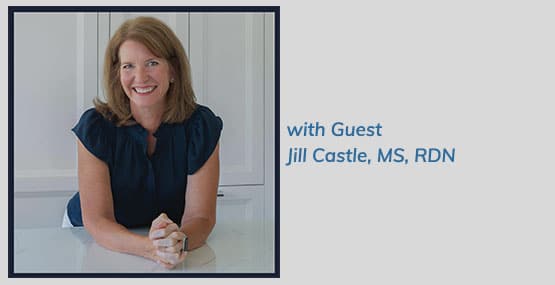
Balancing healthy eating and processed foods for kids
Not All processed foods are harmful, but some are linked to obesity and heart disease
-
By Elizabeth M. Ward, MS, RDN and Kathleen Zelman, RDN
In this episode of Nutrition4Kids Podcasts, host Kathleen Zelman dives into the complexities of balancing healthy eating and processed foods for kids with guest Elizabeth Ward, a nutrition expert, registered dietician, and mother of three. The episode highlights the alarming fact that 50-60% of daily calories come from ultra-processed foods, which are often linked to chronic health issues like obesity and heart disease. Ward helps clear up the confusion around what qualifies as "processed" foods, emphasizing that not all processed foods are harmful. For example, milk and bread are processed to varying degrees but offer essential nutrients.
Understanding processed foods and their nutritional value
Ward discusses the dangers of demonizing all processed foods, pointing out that many processed items, like fortified cereals and whole wheat bread, are vital sources of nutrients. She advises parents to focus on the nutritional value of foods rather than getting caught up in their processing levels. Kathleen and Elizabeth also explore practical strategies for balancing kids' desires for unhealthy snacks with healthier options, stressing the importance of moderation and education. Ward emphasizes that parents should control their child's early exposure to ultra-processed foods while teaching them about balance as they grow.
Practical tips for healthier meals and snacks
The episode is packed with tips on preparing healthier alternatives at home, from making homemade chicken nuggets to using store-bought dough for pizza. Ward encourages parents to make small, manageable changes to promote healthier eating habits in their children, helping them develop a long-term relationship with nutritious foods.
Smart choices and long-term healthy eating habits
The episode offers some excellent takeaways for parents on balancing processed foods and creating nutritious meals for children. It touches on many key points, such as sneaking in veggies with mac and cheese, being smart about label reading, understanding additives like ascorbic acid (Vitamin C), and challenging the myth of "clean eating."
The advice Elizabeth offers is about choosing wisely and incorporating nutritious options like frozen vegetables, whole grains, and treating snacks as "mini meals" instead of indulgences. She emphasizes setting a good example as parents, modeling positive behaviors, and creating healthy household environments crucial for forming long-term habits.
Key takeaways
Nutrients of foods are more important than processing.
Processing is a spectrum, many foods need to be processed to be edible – like wheat.
Processing is not a bad thing, it allows foods to sit on grocery shelves, be more nutritious and more.
Clean eating is a trendy term, it doesn't mean anything according to label standards.
Overall dietary patterns are what really matter most. Avoid ultra processed foods that are loaded with sugar, saturated fat, salt and low in fiber and nutrients.
About Elizabeth M. Ward, MS, RDN
Elizabeth M. Ward, MS, RDN, is a freelance writer and nutrition consultant. She is the author of My Plate for Moms, How to Feed Yourself & Your Family Better; Expect The Best, Your Guide to Healthy Eating Before, During, & After Pregnancy; The Complete Idiot's Guide to Feeding Your Baby; and The Menopause Diet Plan. She regularly writes for WebMD and other publications.
As a spokesperson for the American Dietetic Association for nearly 10 years, Ward was featured in nearly 1,000 print and broadcast interviews, including CNN, U.S. News & World Report, The New York Times, and The Boston Globe. She has also been a guest on the Today Show on NBC, and regularly appears on the Morning News on Fox 25 in Boston.
Ward has been a speaker at more than 100 professional meetings, including The American College of Nurse-Midwives, The American Dietetic Association, The Massachusetts Dietetic Association, The Florida Dietetic Association, The National Association of Catering Executives, The Pennsylvania School Food Service Association, and the International Congress of Dietetics in Paris.
Ward created and conducted corporate nutrition education programs for five years at Medical Care Affiliates in Boston, where she also counseled ambulatory patients. She has worked at the Joslin Diabetes Center and the American Heart Association, and for seven years counseled children and adults about healthy eating and disease prevention at Harvard Vanguard Medical Associates in Boston.
Ward completed her undergraduate degree in human nutrition at the University of Massachusetts, Amherst; a one-year dietetic internship at Brigham and Women's Hospital in Boston, and a masters degree in Mass Communication at Boston University. She is the recipient of the 125 Alumni to Watch Award from the University of Massachusetts, the Media Excellence Award from the American Dietetic Association, was named Recognized Young Dietitian of the Year by the Massachusetts Dietetic Association.




